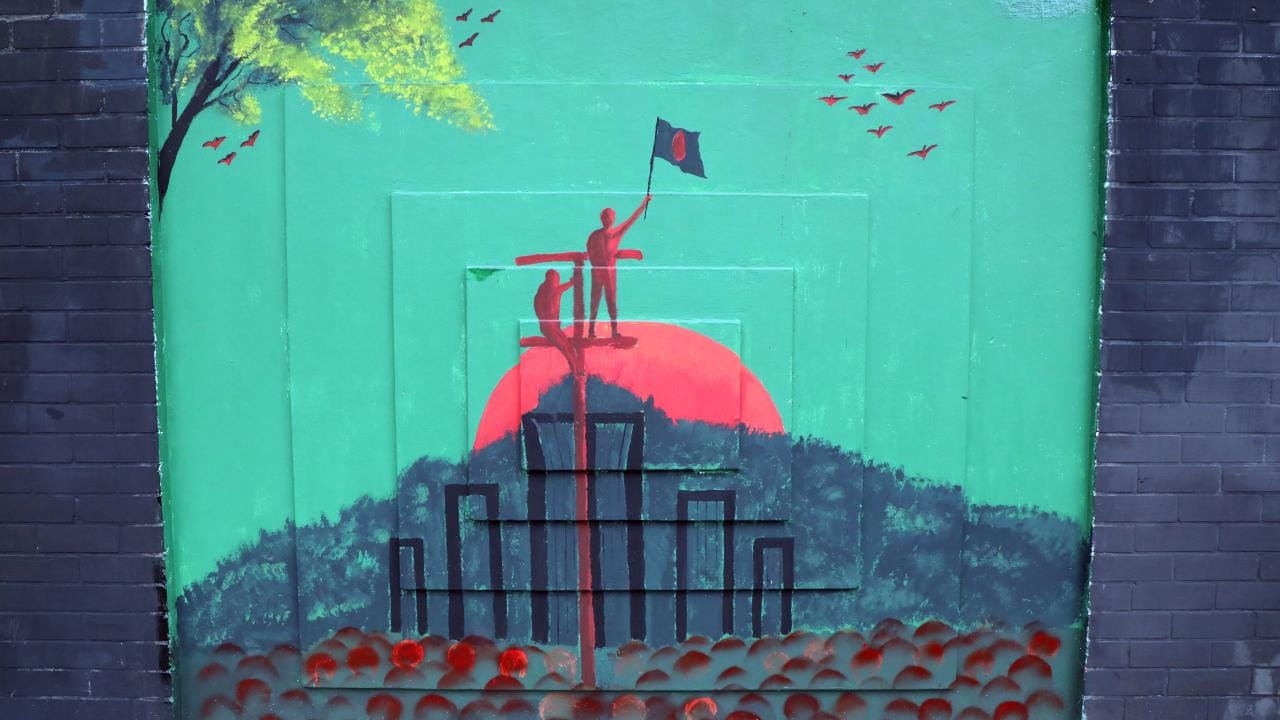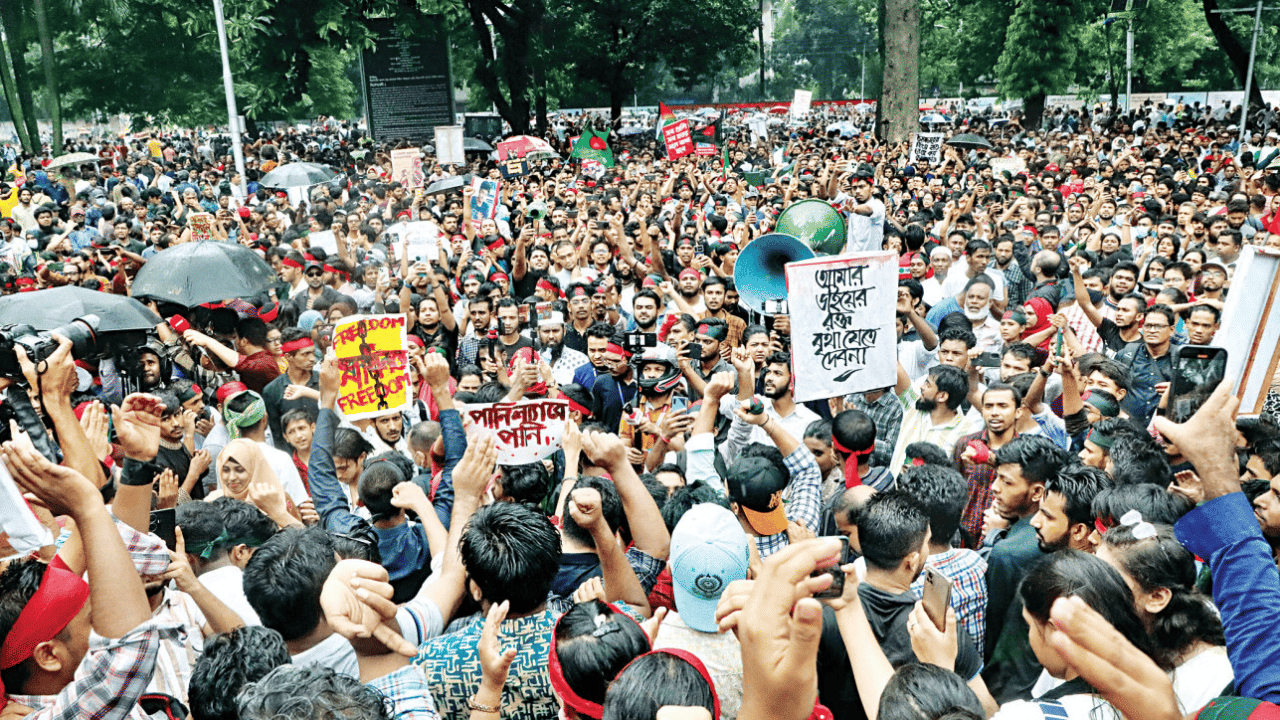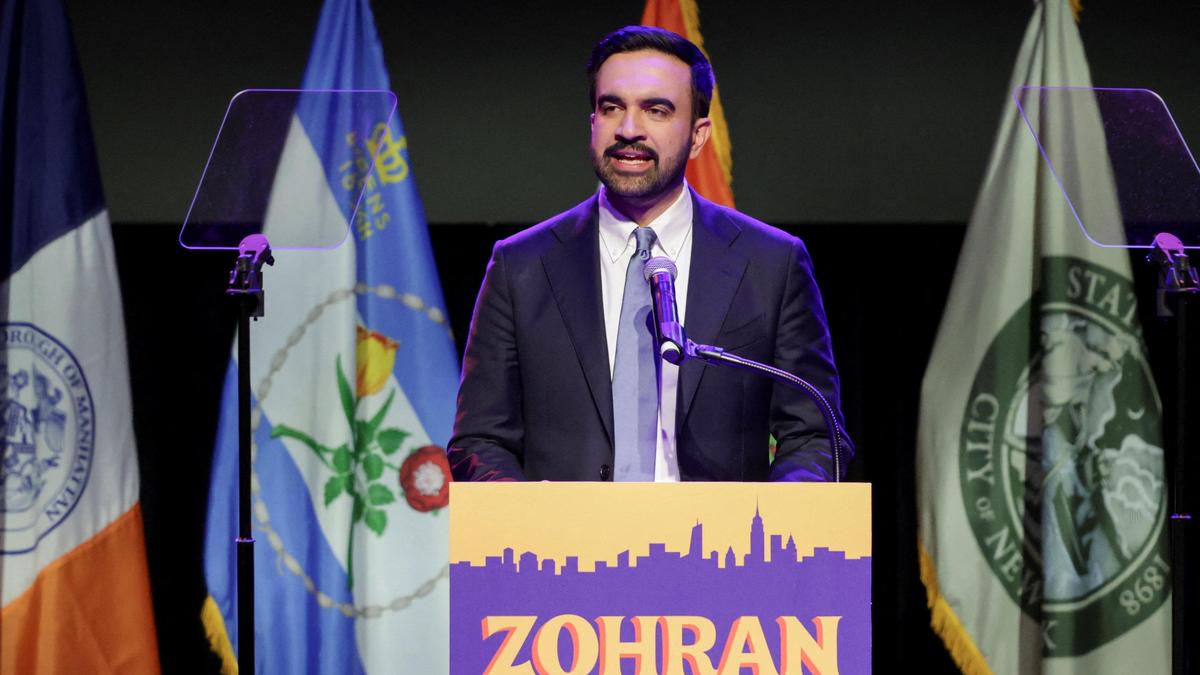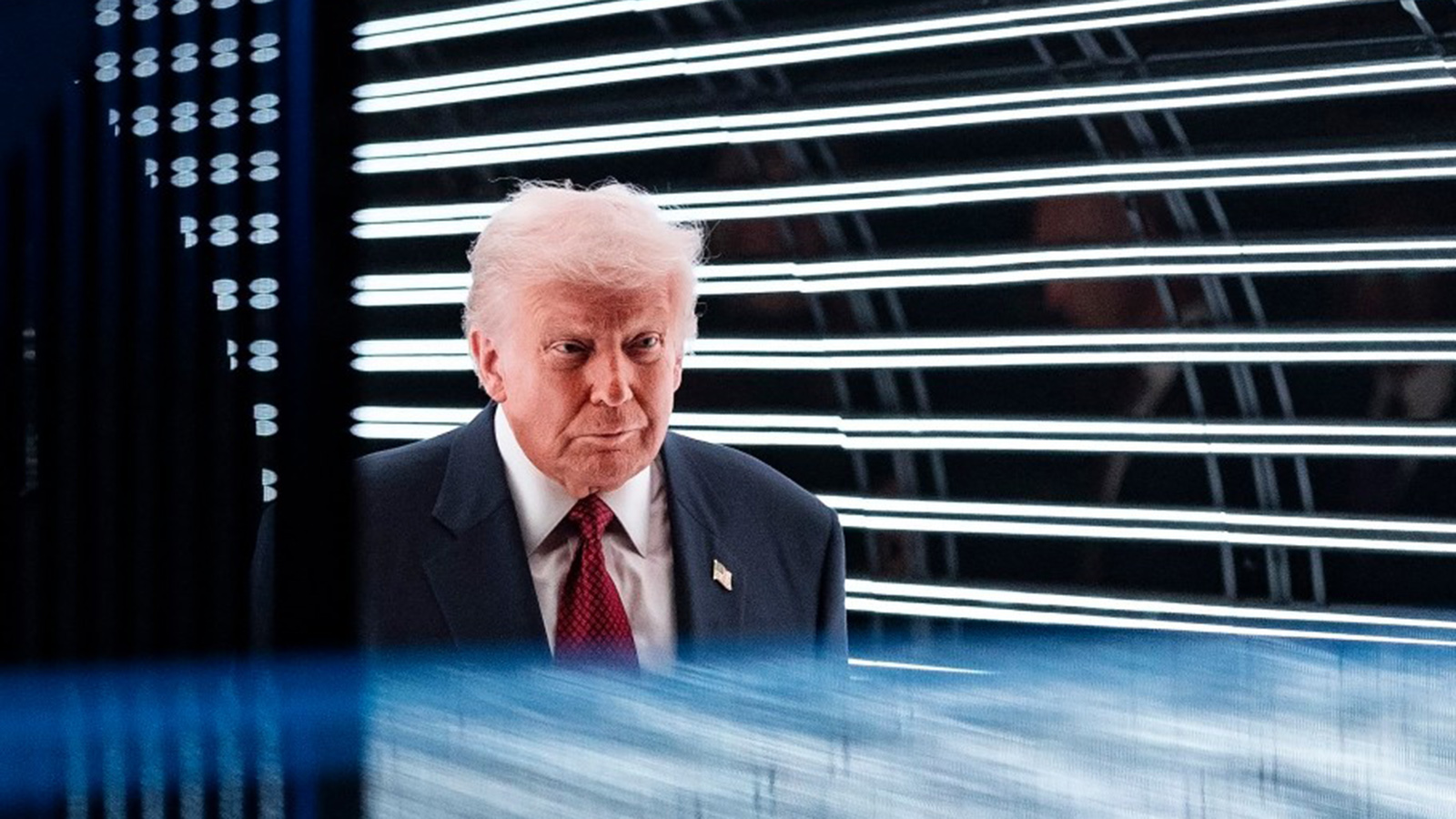Why Mamdani’s politics should matter to Bangladesh

Across continents, democracy seems to be fighting for its life. Authoritarian movements have learned to speak the language of grievance and belonging, while those at the political centre have grown comfortable, mistaking their privilege for stability. Yet there are small ruptures reminding us that politics can still be reclaimed. In Sri Lanka, a Left-leaning government has emerged from economic collapse; in parts of Latin America, progressive coalitions are once again setting the terms of debate; and in New York, Zohran Kwame Mamdani's win was more than a local event.
Mamdani's campaign drew strength from the clarity of its purpose. He spoke openly about rent control, public housing, and the rights of working-class New Yorkers, refusing the evasions of mainstream Democrats on structural and welfare issues. He mobilised and expanded the core voter base through multilingual outreach to Asian and Muslim voters, serious work in Latino neighbourhoods, and persuasion in places moderates usually hold. Mamdani's politics is unapologetically redistributive yet deeply local, grounded in organising rather than celebrity. That clarity—moral and material—is what made his victory a moment of renewal.
By naming an all-women transition team, he signaled that renewal on the Left must be structural, not symbolic—a politics that practices the equality it preaches. It is a reminder that conviction still matters in politics—and that democratic renewal may depend on rediscovering a younger, braver Left. Authenticity and conviction, sustained through organising and solidarity, remain democracy's most renewable resources. Moments like these can stir people to believe again, but without organisation, some of the sincerest movements risk disintegration.

Everywhere, right-wing forces rise by offering moral certainty, while the technocratic and managerial centre offers moderation without vision. Across continents, despite this global pattern, the Left has shown flickers of renewal—from Mexico, Chile, and Uruguay to Colombia, South Africa, and even grassroots movements in India and Europe—albeit imperfect and uneven. Wherever it has regained its footing, it has done so by returning to clarity of conviction, direct language, and a legible sense of purpose. It speaks of parity in wages, housing, education, and the climate as structural and morally urgent concerns. Even in an age of screens and curated personas, people can tell what these candidates stand for. Their strength lies in coherence rather than rhetoric, sincerity rather than spectacle. That combination has made parts of the global Left feel real again, rebuilding faith in collective purpose.
Yet these stirrings of renewal remain fragile and have not taken root everywhere. In some places, the language of justice and the revival of structural reform have been diluted into symbolic politics and narrative exercises. In Bangladesh, the Left has lived many lives and lost most of them. The generation that came out of the Liberation War—the Jasod, the labour organisers, the socialist and communist student groups—was broken by repression and later folded into the Awami League's nationalist project. What survived that tradition was absorbed into the language of governance rather than resistance. The Left's vocabulary remains frozen in the 1970s at the level of subsistence—food, clothing, shelter—without moving to the structural questions of who owns, who profits, and who decides. When NGOs rose in the 1980s and 1990s, they adopted this same vocabulary of "basic needs", thriving on a poverty framework that managed suffering rather than ending it, never confronting structural inequality.

Over time, the Left's shrinking political vocabulary signalled a deeper loss of purpose and courage to confront power. The Bangladeshi Left once spoke of equality and solidarity, but its vocabulary has eroded against power and co-optation. It traded conviction for access and no longer dares to speak of justice. The Right, unburdened by self-doubt, now claims the language of faith and belonging; while a tired middle, moved by pragmatism, works to keep things exactly as they are.
The Bangladeshi Left once spoke of equality and solidarity, but its vocabulary has eroded against power and co-optation. It traded conviction for access and no longer dares to speak of justice. The Right, unburdened by self-doubt, now claims the language of faith and belonging; while a tired middle, moved by pragmatism, works to keep things exactly as they are.
The decline has also been social as much as ideological. The Left, like much of our politics, has been dominated by men. Its rhetoric of emancipation has rarely translated into equality within its own ranks. Even some among the country's progressive intellectuals have begun to romanticise reactionary groups as "voices of the marginalised", echoing the old claim that they were excluded from the project of nation-building. It is a misreading with dire consequences. These forces do not resist power; they reproduce it by confining women, silencing dissent, and defining belonging through faith alone. When those who claim to speak for progress defend such alliances, they surrender the transformative promise of the Left. The result is visible in the country's institutions. The republic's moral and constitutional life seems to have unravelled. Its emancipatory promises have been wielded against the very idea of equality, a process that has ceded moral ground to the Right. The Left must reclaim it if a politics based on belief, conviction, and justice is ever to matter again.
Today's student organisers, who claim to reject both Left and Right, inherit this vacuum. They speak of change, but without a theory of justice or a programme of redistribution. New ideas have begun to circulate among young activists and cultural thinkers. Part of this new rhetoric conflates decoloniality with rejection. They speak the language of resistance but not always of democracy. Some reject both liberalism and secularism as colonial imports and call instead for a return to an "authentic" moral or spiritual politics. Others romanticise rebellion itself—as art, as attitude—without confronting questions of class, gender, or power. We saw this most vividly in the anti-discrimination student movement, which began as a genuine call for equality and drew thousands into the streets. Its moral force was undeniable, yet it faltered when faced with the old logic of power—splits, rival factions, and the quiet seductions of access. What began as a collective demand for justice mirrored the dysfunction and exclusion it had opposed. These revolutionary ideas may feel decolonial, but they risk drifting towards cultural nationalism—promising meaning in a cynical time but offering no plan for what comes next.
Today's student organisers, who claim to reject both Left and Right, inherit this vacuum. They speak of change, but without a theory of justice or a programme of redistribution.
Context matters too; we must separate geographies and positionalities. In the Global North, minority assertion can be a form of decolonial resistance. In the Global South, where the majority holds power, that same language can easily harden into dominance. During Bangladesh's time of upheaval, members of the diaspora have also weighed in—many out of genuine concern, noble intention, and solidarity, many even taking up roles in government. Yet some also brought with them unexamined assumptions. Political templates shaped in minority contexts abroad are sometimes applied here without regard for how power works in a majority setting, where those same gestures can, unintentionally, reinforce rather than resist dominance. The reaction to Mamdani himself makes this clear. Many Bangladeshis, including some conservatives, have celebrated Mamdani's rise because he is Muslim. In our own context, a politician with Mamdani's background—born to a non-Muslim mother and holding outspoken Leftist views—would likely have struggled for acceptance among the very forces now claiming kinship. His success in New York was made possible by democratic structures that gave minorities a voice and a platform—the very institutions now eroding in Bangladesh and most in need of defence, not dismantling.

Democratic structures are the foundations of justice everywhere. Decolonial politics should mean freeing ourselves from domination in every form—whether imperial, economic, or majoritarian. When the Left abandons that principle, reactionary forces sweep in to cast hegemony—albeit of a different kind—as decoloniality. The young now stand at the centre of this confusion. They grew up in a country that spoke endlessly of liberation but offered little sense of freedom. Their distrust of parties and institutions is understandable, as they were never heard. However, cynicism alone is not enough to build a new politics. The new student movements call themselves different—neither Left nor Right—yet their refusal to define what they stand for has left them without a compass. Radical politics cannot only be about rage; it must also embrace reconstruction.
In our own context, a politician with Mamdani's background—born to a non-Muslim mother and holding outspoken Leftist views—would likely have struggled for acceptance among the very forces now claiming kinship.
At its core, this is not only a crisis of the Left but of the Republic itself. The relationship between state and citizen is increasingly defined by fear rather than trust. Years of impunity and state violence have made injustice routine. Political parties, stripped of ideology and accountability, no longer function as vehicles of representation. The result is a republic sustained by coercion instead of consent, where the social contract has frayed beyond recognition. Repairing it will take more than elections or reforms. Politics must be reimagined to bind together the gender, minority, and ecological contracts. A republic must care for its old and its young, its men and its women, its sentient beings and its environment. Anything less betrays the republic.
The repair of our social contract cannot come from the same politics that broke it. It demands a new generation of leadership and imagination. The Left we need now must be younger in spirit—less nostalgic, more global—grounded in solidarities that cross borders and classes. It must speak of climate as the work of repair, labour as dignity, gender as equality, secularism as antidote to majoritarian excess, and democracy as care. This is not an agenda borrowed from the North, nor one long exploited by successive establishments. It is, instead, a project of revival and a recovery of conviction in what politics can still do. The future can be rebuilt by the Left if it finds the courage and the ethic to build again. That, more than anything, is why the Left still matters. It remains the only force that still insists inequality is not destiny, that dignity is non-negotiable, and that the republic endures only when people—irrespective of class, caste, gender, or identity—stand together on the basis of equality.
Dr Cynthia Farid is a lawyer and legal scholar.
Send your articles for Slow Reads to slowreads@thedailystar.net. Check out our submission guidelines for details.



 For all latest news, follow The Daily Star's Google News channel.
For all latest news, follow The Daily Star's Google News channel. 

Comments